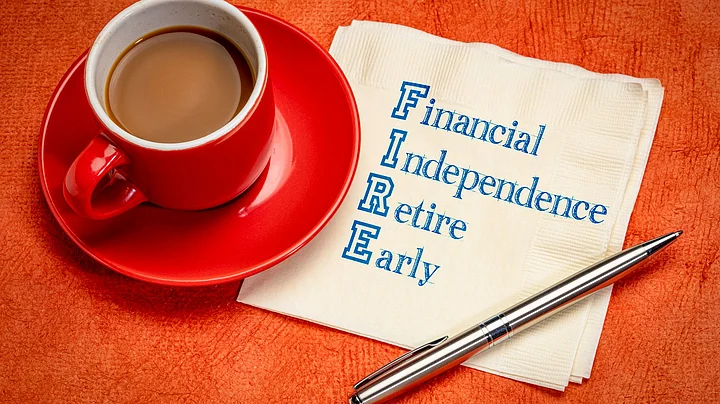When it comes to personal finance, we talk about saving taxes, growing wealth, investing, yada yada… but the actual thought at the back of our collective minds, whether said or unsaid, is always - “What’s the goal here?” Some people get into personal finance to ensure stability, some do it to ensure a better future for their children, some do the same because they have a big expense planned which they’re working towards - the goals can be many.
Amidst all of these groups, there’s one that bases their actions on a more existential idea - human beings weren’t meant to ‘work for a living’ all their lives. And so, people in this group aim for Financial Independence, so that they can Retire Early. They call it the FIRE movement (also written as FI/RE or FI,RE).
The movement appeals to those who:
Want to quit work
Are generally against unchecked consumerism
Want financial independence
Want to move their retirement age forward
It would be an understatement to say that achieving the above is not exactly easy. But the people who champion this cause did lay out a framework on how one can go about their financial independence/early retirement goal.
This involves:
Saving as much of your income as possible (up to 70%)
Living extremely frugally
Paying off all kinds of debt (education, home loans, car loans, etc)
Not owning/using credit cards
Is there a magic FIRE number?
In a way, yes, but it’s not the same for everyone, because not everyone has the same expenses. So it’s not exactly a number, but more of a calculation. FIRE says you need to first figure out your average annual spending, and then go about trying to build your net worth that is 25 times that number. Once you reach that number, you withdraw a maximum of 4% of that every year.
But it’s not just that. You know how they say “If you want to make god laugh, tell him about your plans”? To counter some of that unpredictability FIRE also suggests you have 3-6 months worth of salary saved up in a separate pot.
Also, just because you have your savings in place, doesn’t mean your money shouldn’t grow. Having a diverse investment portfolio is crucial - because FIRE or no FIRE, the power of compounding is universal.
If you can achieve all of that, you can then say you’ve met your FIRE goal.
Some FAQs about FIRE -
Q. Is FIRE for everyone? Or can only a select few afford to live that life?
A. It is true that there are some factors that make it easier for some people to start their FIRE journey sooner than others. For example, FIRE is an easier road for those with great education, because that leads to getting high-paying jobs relatively earlier in one’s career. While someone who has to spend a few years grinding/hustling/struggling early on, for lower pay, will ideally have to wait a few years to start their FIRE journey. But that doesn’t mean it’s impossible.
Q. When can one start their FIRE journey?
A. Ideally, the sooner the better. If you start earning at say 22, and you’ve already marked out some FIRE goals, you’re in a better place than someone who’s in their 30’s. Having said that, know that FIRE has flexible goalposts - meaning, you can adjust your retirement age goal, from say 40 to 50, and allow yourself some leeway.
Q. Which is more important for FIRE - high income or high saving rate?
A. While a high income obviously helps, at the end of the day FIRE is way more a variable of your saving rate. A person who earns 1.5L a month but spends 1L, will have a tougher time achieving their FIRE goal than someone who earns 1L but spends only 35-40K.
Q. Why no credit cards?
A. Because of the monster named ‘intuitive spending’. When you have a credit card, you often end up spending money you don’t have because your brain tells you you can earn the money in the future and make up for it. That’s kind of counterproductive to the FIRE journey.
So here's the interesting thing if you're on the fence about the FIRE movement. Just because they say there's a goal doesn't mean not meeting the goal is failure. Even if you get close to your goal without actually hitting the desired number, it's still a win, because at the end of the day, money saved is money earned, right?
(This article on personal finance is part of The Quint's 'Save and Grow' campaign)
(At The Quint, we question everything. Play an active role in shaping our journalism by becoming a member today.)
